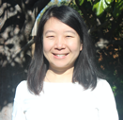
Date:
Location:
Title:
abstract
Designing new quantum materials with long-lived electron spin states is in urgent need of a general theoretical formalism and computational technique to reliably predict spin lifetimes. We present a new, universal first-principles methodology based on density matrix (DM) dynamics for open quantum systems to calculate the spin-phonon relaxation time of solids with arbitrary spin mixing and crystal symmetry. In particular, this method describes contributions of the Elliott-Yafet (EY) and D’yakonov-Perel’ (DP) mechanisms to spin relaxation, corresponding to systems with and without inversion symmetry, on an equal footing[1]. Our ab initio predictions are in excellent agreement with experimental data for a broad range of materials, such as Si, Fe, MoS2, graphene and its interfaces as well as GaAs. Recently, we implemented real-time DM dynamics for ultrafast Kerr rotation and studied spin dynamics under external electric and magnetic field. We found a peculiar spin lifetime anisotropy under external electric field for graphene/hBN interface beyond the traditional DP picture, but consistent with experiments. Work in progress is to include e-e and e-impurity scattering to study spin dynamics at low temperature and other topological two-dimensional materials and their interfaces.
In addition, we will also introduce our recent work on radiative and nonradiative exciton recombination in two-dimensional systems from many-body perturbation theory and its applications on designing point defects as single photon emitter and spin qubits in hexagonal BN[2-6]. Our work underscores the predictive power of first-principles techniques for key physical properties to quantum information science.
References:
[1] J. Xu, A. Habib, S. Kumar, F. Wu, R. Sundararaman, and Y. Ping, Nature Communications, 11, 2780, (2020)
[2] F. Wu, T. Smart, J. Xu, Y. Ping, Physical Review B, 100, 081407(R) (2019)
[3] F. Wu, D. Rocca and Y. Ping, Journal of Materials Chemistry C, 7, 12891, (2019)
[4] F. Wu, A. Galatas, R. Sundararaman, D. Rocca, and Y. Ping, Physical Review Materials, 1, 071001(R), (2017).
[5] T. Smart, F. Wu, M. Govoni and Y. Ping, Physical Review Materials, 2, 124002, (2018).
[6] T. Smart, K. Li, J. Xu, Y. Ping, under review, arXiv:2009.02830, (2020)
bio
Yuan Ping received her B.Sc. degree from University of Science and Technology of China (USTC), in 2007 and her Ph.D. from UC Davis under Giulia Galli (currently at U. Chicago) in 2013. She was a materials postdoctoral fellow in JCAP at Caltech from 2013 to 2016, under the supervision of William Goddard III. In 2016 summer, she joined the faculty at UC Santa Cruz as an assistant professor in Chemistry department and affiliated professor in physics department.
Ping made important contributions on developing many-body perturbation theory with efficient numerical methods, in particular solving Bethe-Salpeter equation without empty states for solids with her coworkers during her PhD. She worked on charge transfer and catalytic properties at solid/liquid interfaces and polaronic transport in doped oxides during her postdoc and afterward. Now she moved to a new direction of developing quantum dynamics for spin and exciton from first-principles, designing new materials for quantum information science. Ping has authored more than 40 peer-reviewed publications including Nature Materials, Nature Communications, Phys. Revs., JACS, Chem. Soc. Rev. where she was the sole or co-corresponding author. She was a recipient of Nature Research award in 2020 and Hellman fellows in 2018.
Hosted by Chris Van de Walle. Download event flyer.



